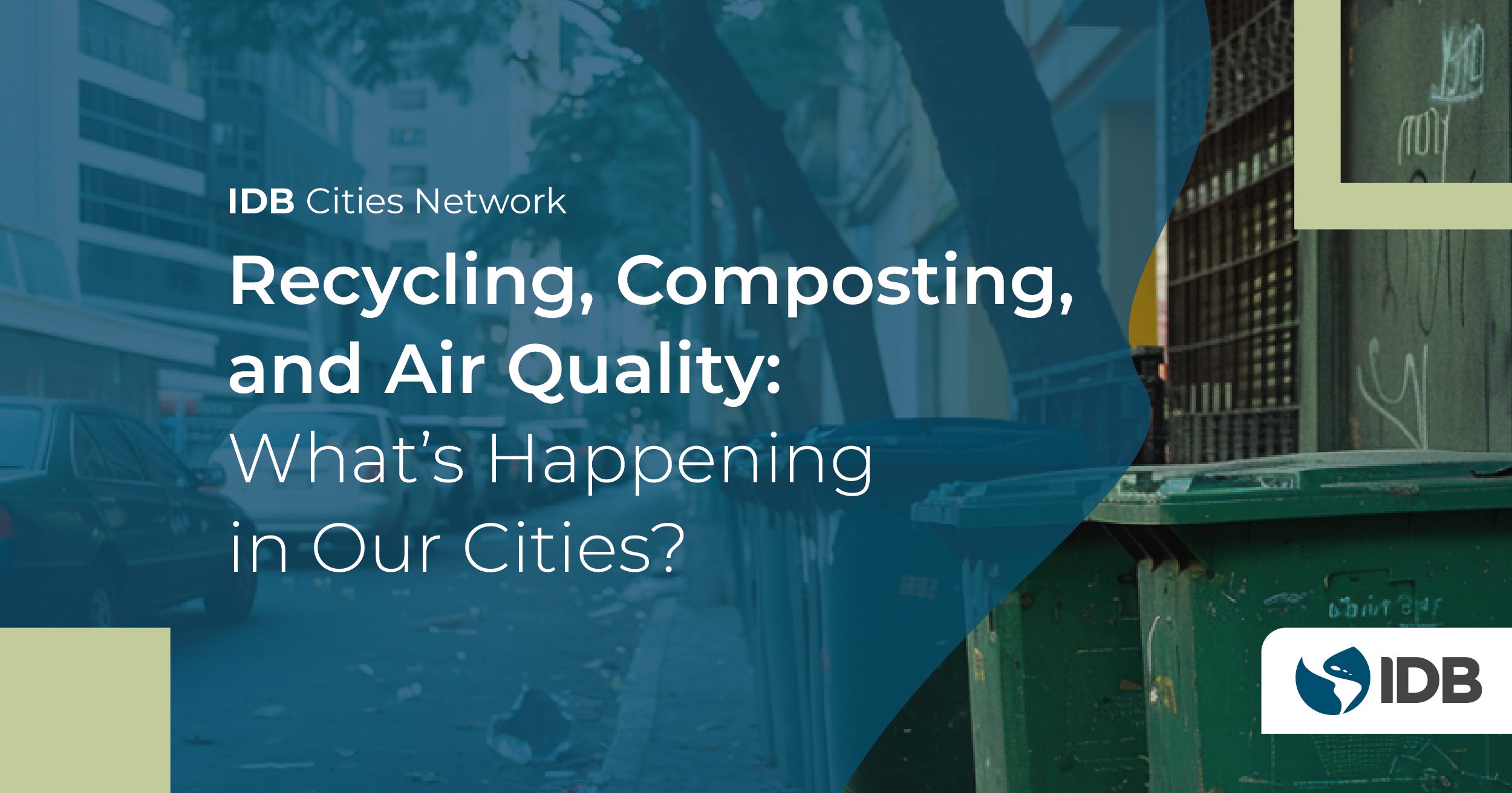Este artículo está también disponible en / This post is also available in: Spanish
Cities in Latin America and the Caribbean are grappling with severe pollution problems due to inadequate waste management and poor air quality. In 2021, the region generated 230 million tons of municipal solid waste, half of which was not properly managed, leading to uncontrolled landfills and methane emissions (Alarcón, et al., 2023). Air quality is particularly alarming in some cities; for instance, Santiago, Chile, and Lima have PM2.5 levels that exceed WHO recommendations by up to five times. Driven by rapid urban growth, industrialization, and intensive fossil fuel use, these issues impact public health and result in significant economic costs (Statista, 2023).
Local governments play a critical role in waste management and environmental policies. Adopting a circular economy approach is essential to promote waste reduction, reuse, recycling, and innovation. Additionally, stronger environmental policies and improved urban infrastructure are needed to cut emissions and enhance air quality, fostering more sustainable and equitable development.
The IDB Cities Network’s webinar series, “Strategies to Address Pollution in Cities of Latin America and the Caribbean” focuses on key strategies to advance waste management and improve air quality in urban areas. We invite you to explore more about each webinar below.
Webinar 1: Managing Urban Waste for Cleaner Cities–September 4, 2024 – 10:00 – 11:30 ET.
Promoting a circular economy in Latin America and the Caribbean (LAC) is crucial for achieving sustainable development in line with the 2030 Agenda. This approach aims to transform production and consumption models by emphasizing prevention, reuse, recycling, energy recovery, and final waste management. The region accounts for 11.55% of global solid waste and generates about 13.5% of global methane (CCAC, 2022). This contributes to uncontrolled landfills and greenhouse gas emissions like methane, which has over 80 times the warming potential of carbon dioxide (CO2) over 20 years (UNEP, 2024). In large cities, high population density and elevated consumption patterns result in significant waste generation, leading to considerable social costs, especially in communities lacking basic services.
Transitioning to a circular economy is key to reducing environmental impact, enhancing recycling and reuse practices, and improving organic waste management. This approach not only helps cut greenhouse gas emissions but also creates sustainable economic opportunities. Join us for this upcoming webinar, where we will explore circular economy approaches, recycling, and emission reduction, with concrete examples of how cities are making significant strides in reducing their environmental footprint and enhancing urban quality of life.
Webinar 2: Improving Urban Air Quality – September 11, 2024 – 10:00 – 11:30 ET.
Air pollution has become a global public health crisis with alarming consequences. Eighty-four percent of LAC’s population now live in areas with air quality that does not meet World Health Organization standards (Gouveia et al. 2021). In 2019, the cost of mortality and morbidity from Particulate Manner PM2.5 in Latin America and the Caribbean was 3.4% of regional GDP, with 229,000 deaths, reaching 35 deaths per 100,000 inhabitants. (World Bank, 2021). This issue disproportionately affects children under five and is the second leading global risk factor for death, according to the latest Global Air Status report 2024 (Health Effects Institute, 2024). The reliance on fossil fuels for transportation, with a 4.7% annual increase in motorization rates between 2005 and 2015, and polluting industrial practices, worsen this problem (Serebrisky, Tomás., et al., 2019).
Prioritizing urban-environmental policies and projects is crucial for enhancing air quality monitoring, evaluation, and management. This will protect public health and reduce the economic costs associated with respiratory and cardiovascular diseases. We invite you to join this upcoming webinar, where we will explore innovative and collaborative approaches used to monitor and reduce pollutant emissions, aiming to safeguard public health and promote a more sustainable urban environment.
Exploring Alternatives to Address Pollution in LAC Cities
Exploring and applying strategies to improve air quality and waste management in LAC is essential. We invite you to participate in the upcoming webinars: “Managing Urban Waste for Cleaner Cities” on September 4 and “Improving Urban Air Quality” on September 11, 2024. These events provide an opportunity to share knowledge, strategies, and key solutions to tackle these critical challenges. Connect and contribute to the transition towards cleaner, healthier cities!


Leave a Reply